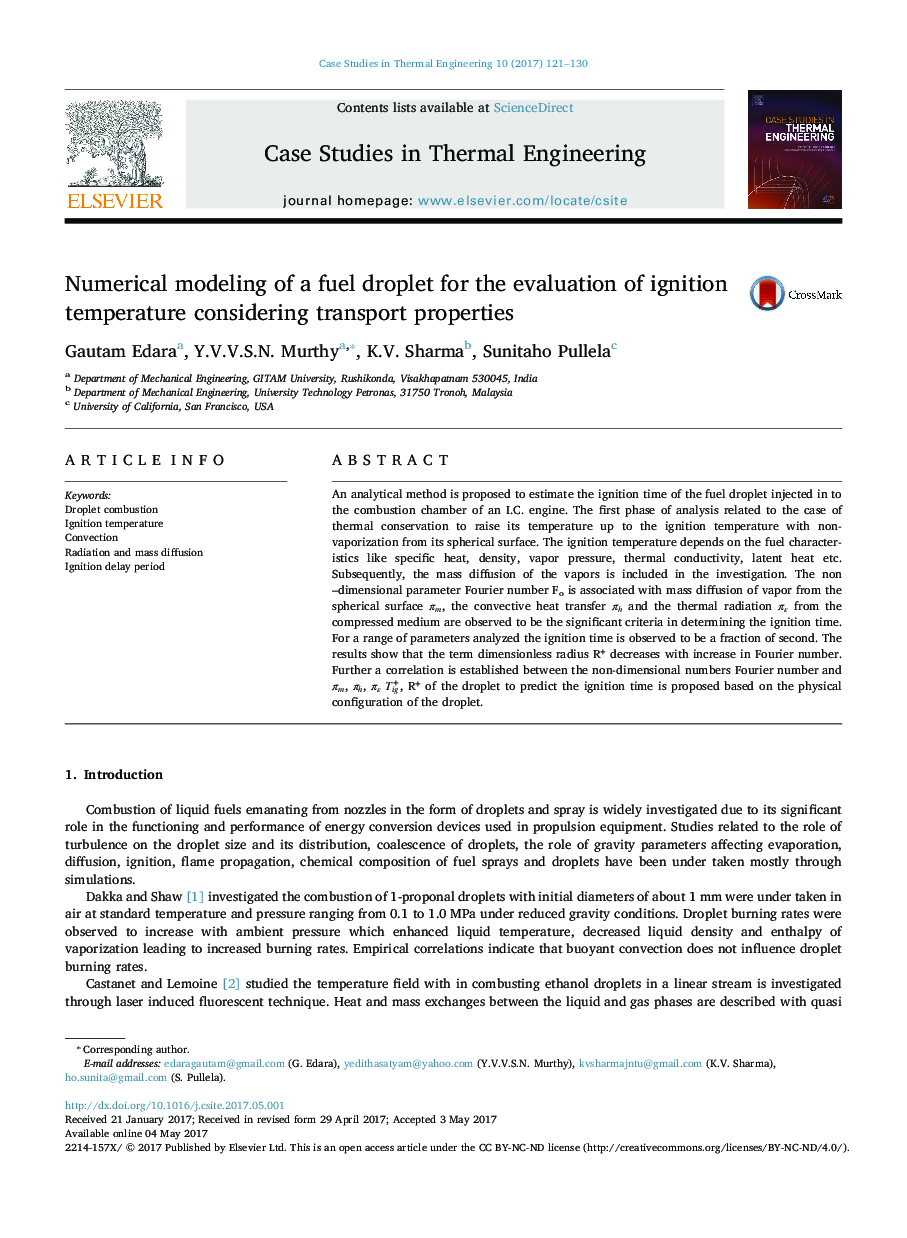| Article ID | Journal | Published Year | Pages | File Type |
|---|---|---|---|---|
| 5011208 | Case Studies in Thermal Engineering | 2017 | 10 Pages |
An analytical method is proposed to estimate the ignition time of the fuel droplet injected in to the combustion chamber of an I.C. engine. The first phase of analysis related to the case of thermal conservation to raise its temperature up to the ignition temperature with non-vaporization from its spherical surface. The ignition temperature depends on the fuel characteristics like specific heat, density, vapor pressure, thermal conductivity, latent heat etc. Subsequently, the mass diffusion of the vapors is included in the investigation. The non -dimensional parameter Fourier number Fo is associated with mass diffusion of vapor from the spherical surface Ïm, the convective heat transfer Ïh and the thermal radiation Ïε from the compressed medium are observed to be the significant criteria in determining the ignition time. For a range of parameters analyzed the ignition time is observed to be a fraction of second. The results show that the term dimensionless radius R+ decreases with increase in Fourier number. Further a correlation is established between the non-dimensional numbers Fourier number and Ïm,Ïh, ÏεTig+,R+ of the droplet to predict the ignition time is proposed based on the physical configuration of the droplet.
